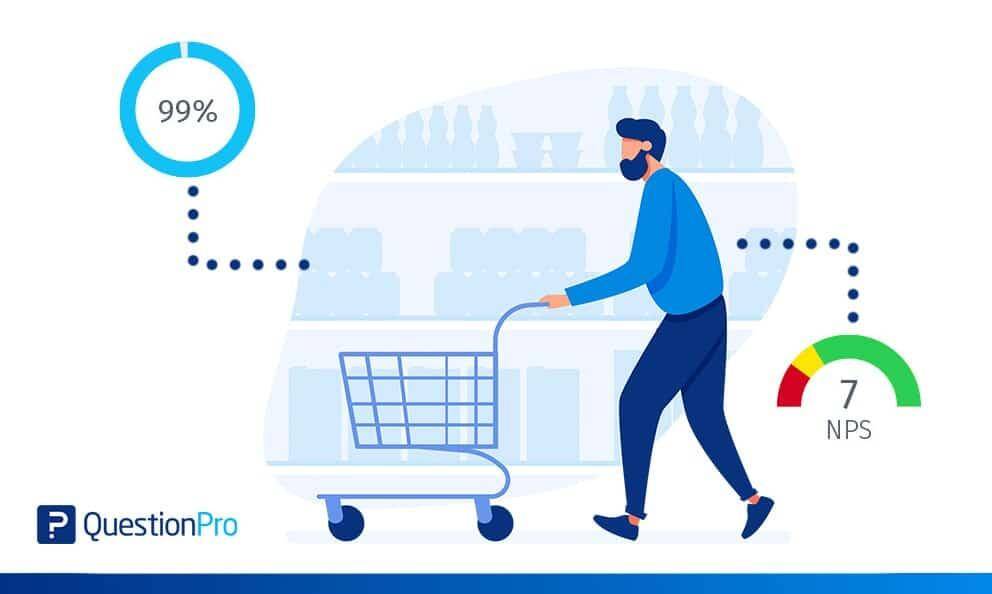In the ever-evolving landscape of business, where consumer preferences shift like the wind and competition intensifies with each digital innovation, the need for insightful decision-making has never been greater. Enter marketing analytics, the key that unlocks a treasure trove of data-driven insights, enabling companies to navigate the complexities of the marketplace with precision and confidence. Far from mere numbers and charts, marketing analytics serves as a compass, guiding organizations through the chaotic sea of data. it illuminates patterns, uncovers hidden opportunities, and transforms raw data into actionable strategies that can elevate brands and resonate with audiences. This article delves into the transformative power of marketing analytics, exploring it’s essential role in shaping successful marketing strategies and driving business growth in a dynamic environment. Join us as we unpack the tools, techniques, and trends that are redefining how businesses understand and engage their customers.
Table of Contents
- Harnessing Data to Drive Strategic Decisions
- The role of Consumer Behavior in Shaping Marketing Strategies
- Transforming Insights into Actionable Campaigns
- Measuring Success: Key Metrics for Effective Marketing Analytics
- Q&A
- To sum up

harnessing Data to Drive strategic Decisions
In today’s data-driven landscape, organizations that leverage marketing analytics can gain a notable competitive edge. With the right tools in place,businesses can transform raw data into valuable insights that guide strategic initiatives. By capturing and analyzing consumer behavior, market trends, and campaign performance, companies can make informed decisions that align with their overarching goals. Key strategies for harnessing data include:
- Identifying target audience segments through demographic and psychographic analysis.
- Measuring the effectiveness of marketing campaigns to optimize ROI.
- Utilizing predictive analytics to forecast customer needs and behaviors.
- Integrating data from multiple sources to form a holistic view of performance.
To truly capitalize on the potential of marketing analytics,businesses must prioritize the integration of technology with human insight. This synergy enables teams to not only interpret data trends but also to infuse creativity into their marketing strategies. Consider employing a structured approach to collaboration, where data-related findings inform brainstorming sessions, ensuring that analytical insights drive creative solutions. Below is an example table showcasing how various marketing channels contribute to overall performance metrics:
| Marketing Channel | Click-Through Rate (%) | Conversion Rate (%) |
|---|---|---|
| Email marketing | 3.5 | 1.2 |
| Social media | 5.0 | 0.9 |
| Content Marketing | 4.2 | 2.5 |
| Paid Advertising | 2.8 | 1.5 |

The Role of Consumer Behavior in Shaping Marketing Strategies
Consumer behavior plays a pivotal role in shaping the strategies marketers employ to connect with their target audiences. Understanding the nuances of how consumers think, feel, and act is essential for brands aiming to craft effective campaigns. By utilizing insights gleaned from data analytics, marketers can identify patterns in consumer preferences, purchasing behavior, and engagement tendencies. This information is invaluable in developing tailored marketing initiatives that resonate deeply with potential customers. Such insights can lead to the optimization of messaging,the selection of channels,and the timing of outreach,ultimately ensuring a more compelling brand experience. to effectively harness the power of consumer behavior, marketers often analyze various factors that influence decision-making processes. These may include:
- Demographics: Age, gender, income, and education level.
- Psychographics: Values, interests, and lifestyle choices.
- Geographic Location: Local culture and market specifics.
- Social Influences: Peer recommendations and social media interactions.
By integrating these aspects into their overall marketing strategy, brands can gain a comprehensive understanding of their audience. The resulting data can be visualized in a meaningful way, allowing for more strategic decision-making. Such as, consider the table below showcasing how different consumer segments respond to marketing channels:
| Consumer Segment | Email Marketing | Social Media | Search engines |
|---|---|---|---|
| Millennials | 30% | 50% | 20% |
| Gen Z | 15% | 70% | 15% |
| Baby Boomers | 40% | 20% | 40% |
This analysis not only illuminates the preferences of different groups but also empowers marketers to allocate their resources more efficiently, ensuring that they maximize engagement across the right platforms.
Transforming Insights into Actionable Campaigns
In the realm of marketing analytics, the journey doesn’t end with data collection; it begins ther. By effectively interpreting trends, consumer behavior, and engagement metrics, businesses can establish a strong foundation for their campaigns. Actionable insights derived from analytics can be transformed into strategic initiatives that resonate with targeted audiences. To make this transformation seamless, consider the following steps:
- Identify Key Metrics: Focus on the numbers that matter most to your objectives.
- Segmentation: Break down your audience into smaller, more targeted groups.
- Creative brainstorming: Use insights as a springboard for innovative ideas.
- Goal Alignment: Ensure that your campaigns align with broader organizational goals.
To visualize the potential impact of this approach, a strategic framework can be helpful. Below is a table that outlines different insights and their corresponding actionable steps for campaign enhancement:
| Insight | Actionable Campaign Step |
|---|---|
| High engagement rate on social media | Invest in targeted social ads for key demographics |
| Declining email open rates | A/B test subject lines to enhance engagement |
| Increased website traffic from mobile | Optimize landing pages for mobile use |
By embracing data-driven strategies and fostering a culture that prioritizes insight over intuition, organizations can harness the full potential of their marketing efforts. The ability to pivot and adapt based on real-time feedback not only boosts efficacy but also creates a lasting relationship with consumers, positioning brands as responsive and attuned to their audience’s needs.

Measuring Success: Key Metrics for Effective Marketing Analytics
In the realm of marketing analytics, identifying and tracking crucial metrics is the cornerstone of measuring success. Key performance indicators (KPIs) not only help gauge the effectiveness of campaigns but also offer valuable insights into consumer behavior and market trends. Utilizing metrics like conversion rates, customer acquisition cost, and return on investment (ROI) enables marketers to understand which strategies yield the best results.Additionally,assessing metrics such as engagement rates and impressions can illuminate how well content resonates with the target audience,guiding future campaign optimizations.
To illustrate effective measurement, consider the importance of tracking the customer journey through a well-structured table that highlights essential metrics across different stages:
| Stage | Metric | Description |
|---|---|---|
| Awareness | Impressions | Number of times ads are displayed to potential customers. |
| Consideration | Click-Through Rate (CTR) | Percentage of users who click on ads after seeing them. |
| Conversion | Conversion Rate | Percentage of visitors who complete the desired action (e.g., making a purchase). |
By continuously monitoring and analyzing these crucial metrics, marketers can not only evaluate current performance but also uncover deeper insights that inform strategic decision-making. Each metric represents a piece of the puzzle, contributing to a holistic understanding of market dynamics and customer preferences.When leveraged correctly, these insights hold the power to steer campaigns toward unprecedented success.
Q&A
Q&A: Unlocking Insights: The Power of Marketing Analytics
Q: What is marketing analytics, and why is it importent? A: Marketing analytics refers to the measurement, management, and analysis of marketing performance to maximize its effectiveness and optimize return on investment (ROI). In today’s data-driven world, understanding consumer behavior and campaign effectiveness is crucial. Marketing analytics empowers businesses to make informed decisions, tailoring strategies to meet audience needs and improve overall performance.
Q: How can businesses effectively leverage marketing analytics? A: Businesses can leverage marketing analytics by first establishing clear goals and KPIs (Key Performance Indicators). By collecting and analyzing data from various channels—such as social media,email,SEO,and advertising—companies can gain valuable insights into what works and what doesn’t. Implementing appropriate tools and software can facilitate the analysis process, allowing businesses to adapt their strategies in real-time for greater impact.
Q: What types of data should marketers focus on when utilizing marketing analytics? A: Marketers should focus on several types of data including customer demographics, engagement rates, conversion rates, and sales figures. Behavioral data—such as website interactions and social media activities—can provide deeper insights into customer preferences. Additionally, qualitative data, like customer feedback and surveys, can enrich quantitative findings, giving a more comprehensive view of the market.
Q: What role do predictive analytics play in marketing? A: Predictive analytics use historical data and statistical algorithms to forecast future outcomes. In marketing, this means being able to anticipate customer behavior and preferences before they happen.By identifying trends and patterns, businesses can proactively adjust their marketing strategies, enhancing customer experience and increasing conversions while minimizing risks associated with new campaigns.
Q: Can small businesses benefit from marketing analytics, or is it mainly for larger companies? A: Absolutely! Marketing analytics is beneficial for businesses of all sizes. Small businesses can harness the power of analytics to understand their local market,track customer engagement,and optimize their limited resources.Accessible tools and platforms enable even those with smaller budgets to utilize analytics effectively, driving growth and innovation in competitive markets.
Q: What challenges do companies face when implementing marketing analytics? A: Common challenges include data integration from multiple sources, a lack of skilled personnel to analyze data, and ensuring data quality. Additionally, interpreting complex data can be daunting for many. Overcoming these challenges frequently enough requires investment in technology, training, and a cultural shift towards data-driven decision-making within the institution.
Q: How can marketers ensure they are making data-driven decisions? A: To ensure data-driven decisions, marketers should establish a culture of experimentation that encourages testing hypotheses and learning from results. Regularly reviewing and updating analytics tools, training personnel in data interpretation, and collaborating across departments can create a holistic view of performance.Additionally, setting up dashboards that visualize key metrics can help in making informed, timely decisions.
Q: What does the future hold for marketing analytics? A: The future of marketing analytics is set to become even more sophisticated with advancements in artificial intelligence (AI) and machine learning. These technologies promise to enhance predictive analytics and automate data analysis, providing deeper insights faster then ever. As data privacy regulations evolve, ethical considerations will also shape how companies collect and use data, ensuring customer trust remains at the forefront of marketing practices.
Q: how can organizations continue to unlock insights from their marketing analytics? A: Organizations can continually unlock insights by fostering a mindset of curiosity and adaptability. Regularly revisiting analytics goals, experimenting with new tools, and sharing insights across departments can encourage innovation. Furthermore, staying updated on industry trends and consumer behavior will ensure that marketing strategies evolve alongside market demands, ensuring sustained success.
To sum up
In a world inundated with data, the ability to distill insights from the noise has never been more crucial. As we’ve explored in this journey through marketing analytics,the true power lies not just in the numbers,but in the stories they tell. From consumer behavior to campaign performance, each dataset is a piece of a larger puzzle, offering marketers the key to unlocking more meaningful connections. Embracing marketing analytics transforms decision-making from guesswork to informed strategy,allowing brands to adapt and thrive in an ever-evolving landscape. The insights gleaned pave the way for personalized experiences, optimizing resources, and ultimately, driving growth. As you venture forth, remember that every click, view, and interaction is rich with potential—waiting to be unlocked. So, harness the power of analytics not merely as a tool, but as a compass to navigate the complexities of consumer engagement. The path ahead is paved with insights, and those who dare to explore will find chance at every turn.








